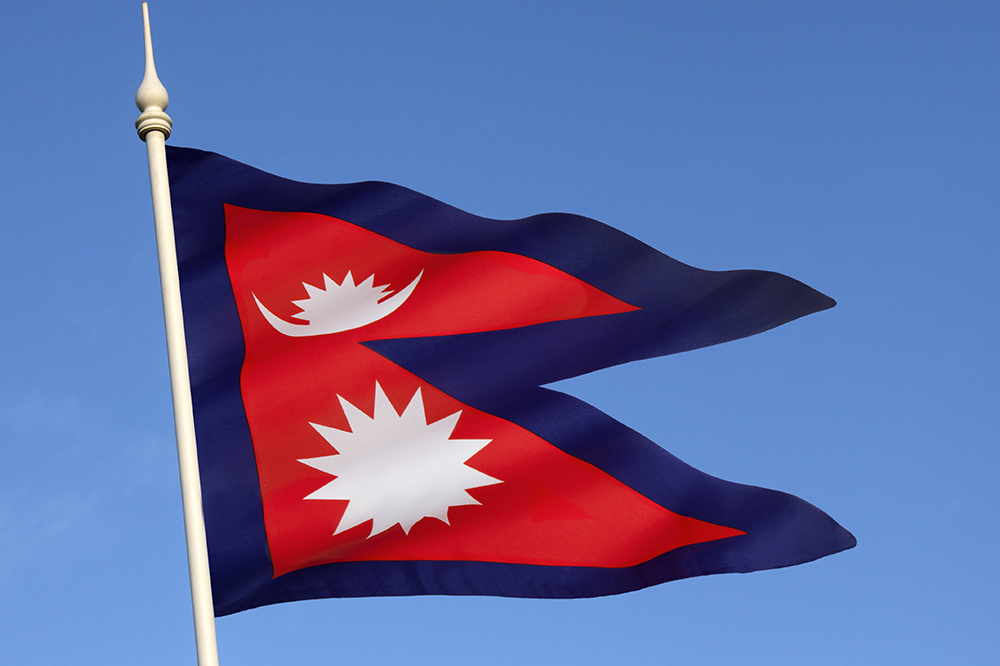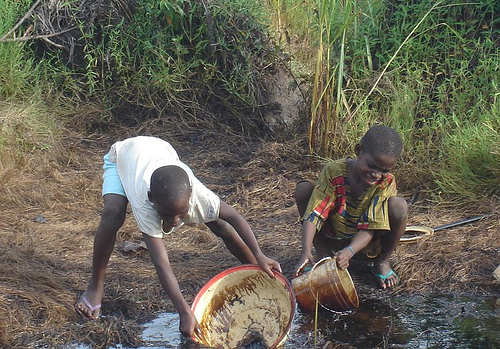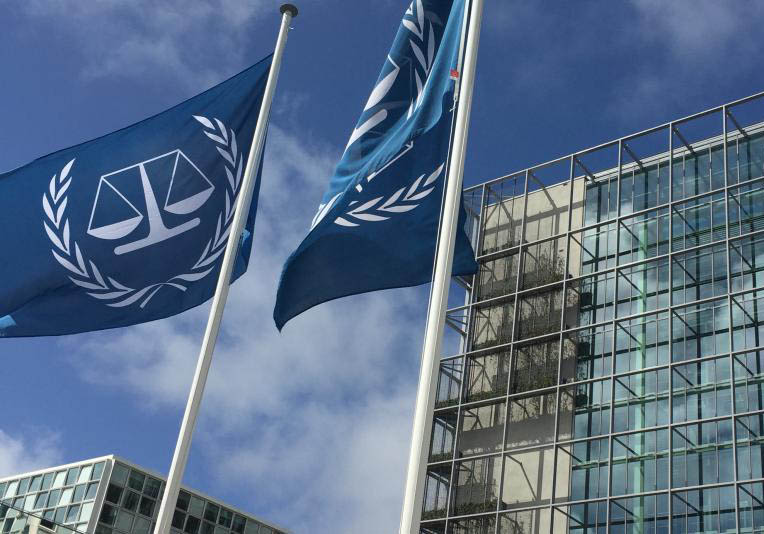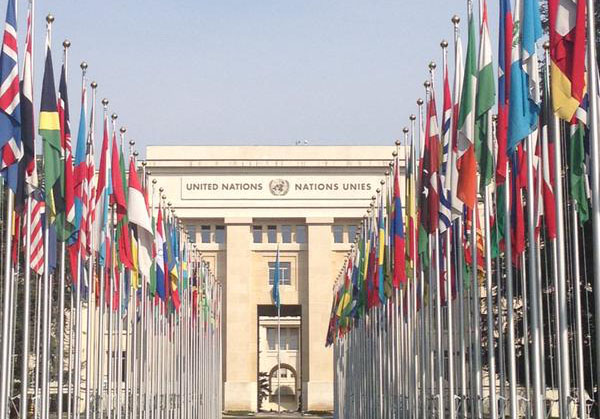
May 14, 2018
Today, the ICJ issued a mid-term submission on Nepal’s implementation of the recommendations it had received during the second cycle of the UPR review in 2015.
In its submission, the ICJ raised specific concerns about the Government of Nepal’s failure to fulfill its stated commitment to implement the recommendations it had received. The recommendations discussed in the ICJ submission, many of which restated existing legal obligations of Nepal, related to four areas:
i) Transitional justice
ii) Legislative framework to address serious human rights violations
iii) Accountability for past human rights violation
iv) International mechanisms
View the ICJ’s full submission here: Nepal-UPR report-Advocacy-Non Legal Submission-2018-ENG

Apr 30, 2018
The ICJ and other human rights, environmental and development groups sent a letter to the United Kingdom’s Supreme Court in support of the Claimants’ application for permission to appeal in Okpabi and others v Royal Dutch Shell plc and another [2018] EWCA Civ 191 (Okpabi).
The case raises important issues relating to: the duties of UK-headquartered parent companies to those affected by their subsidiaries’ global operations; and access to justice for people allegedly harmed by these operations.
In the letter, the ICJ and other groups argue that plaintiffs should be allowed to appeal the decision by the UK Court of Appeal judgment in Okpabi which suggests a highly restrictive approach to parent company liability, which if left standing, is likely to drastically limit the options that victims of abuse have to access justice, and potentially encourage further irresponsible business behaviour.
UK-Okpabi vs Shell-Advocacy-open letters-2018-ENG (full open letter, in PDF)

Mar 19, 2018
The Government of the Philippines should reconsider and reverse its hasty and ill-conceived decision to withdraw as a State Party to the Rome Statute to the International Criminal Court, the ICJ said today.
In a letter transmitted to Philippine President Rodrigo Duterte, the ICJ questioned the stated basis for the decision to withdraw from the Rome statute, to which it has been party since 2011, and to commit itself to effectively investigate the numerous allegations of widespread and systematic extrajudicial killings and bring to justice those responsible.
The ICC has jurisdiction over certain serious crimes under international law including genocide, crimes against humanity, and war crimes.
“The Philippine government’s submitted justifications for withdrawing from the ICC are a litany of poorly thought out pseudo-legal arguments and self-serving statements that focus on President Duterte’s fear and resentment at facing questions for the horrific campaign of extrajudicial executions that his government has explicitly condoned,” said Sam Zarifi, ICJ’s Secretary General.
“At any rate, despite what the Philippine president may wish, withdrawal from the ICC will not prevent the Prosecutor from conducting a preliminary examination because the acts complained of were committed prior to the date when the withdrawal becomes effective,” he added.
Under the Rome Statute, withdrawal as a State Party takes effect only after one year from notification of the UN Secretary General, unless a later date is specified.
The ICJ’s letter to President Duterte highlights some of the legal and factual errors contained in the Philippine government’s official submission of the justifications for the withdrawal.
The letter points out that the launch of a preliminary examination does not violate the principle of presumption of innocence or due process.
In order to proceed with a full investigation, if the Prosecutor determines it is warranted, a pre-trial chamber of judges would still have to give approval.
The letter notes the Philippine government will have the opportunity to argue that it is willing to investigate and prosecute, and that its domestic processes are sufficient to address the crimes alleged.
Since President Rodrigo Duterte assumed office in June 2016, there has been a notable increase in the number of killings of persons allegedly involved in the trade and sale of illegal drugs.
It has been alleged that the number of persons killed has reached to the thousands, and that many of these killings were unlawful, amounting to extrajudicial executions.
“President Duterte has very publicly stated that he will block investigations into the conduct of his government and its role in the killings of thousands of people; he has insulted and threatened United Nations officials; he has bullied and belittled domestic critics and civil society. He’s now trying to avoid accountability under international law, too,” Zarifi said.
“There is no indication so far of a genuine, thorough, prompt, impartial, and independent investigations of these crimes in the Philippines, and the apparent unwillingness of the authorities to do so is one of the grounds on which the ICC can and should assert jurisdiction to undertake its own investigation,” he further said.
“Instead of engaging in legal maneuvers to facilitate impunity, President Duterte must unequivocally denounce extrajudicial killings, whether of alleged criminals or of any person in the Philippines, and allow a proper investigation of these crimes,” he added.
The ICJ calls on the Government to take immediate and effective measures to address the thousands of cases of extrajudicial killings in observance of its domestic laws and to respect its obligations under human rights law, including the International Covenant on Civil and Political Rights (ICCPR).
Investigations of extrajudicial, summary or arbitrary killings should be geared towards establishing the crime and bringing perpetrators to justice.
Contact
Emerlynne Gil, Senior International Legal Adviser for Southeast Asia, t +662 619 8499 (ext. 206) ; e: emerlynne.gil(a)icj.org
Philippines-ICJ Letter ICC Withdrawal-Advocacy-Open letters-2018-ENG (full letter, in PDF)

Feb 26, 2018
In a private letter sent to select UN member states, nearly 20 human rights organizations called for clear and concrete actions to denounce China’s current rollback in respect for human rights at the UN Human Rights Council, which opens its session in Geneva today.
The groups highlight five cases of human rights defenders that would benefit from further pressure being brought to bear on the Chinese government. They include:
– Liu Xia, a poet kept under house arrest after the death of her husband, Nobel laureate Liu Xiaobo, in July 2017;
– Wang Quanzhang, a rights lawyer held incommunicado since July 9, 2015;
– Gui Minhai, a Swedish citizen arbitrarily detained in China since he vanished from Thailand in October 2015;
– Tashi Wangchuk, a Tibetan cultural rights and education advocate who has been detained more than two years on charges of inciting separatism; and
– Yu Wensheng, a prominent human rights lawyer disbarred, then arbitrarily detained, in January 2018.
The report of the UN Special Rapporteur on Human Rights Defenders, Mr Michel Forst, to the current Human Rights Council session, describes the dire situation for human rights lawyers and other defenders in China (see paragraphs 277 to 297 of the report.
‘These are just five cases among hundreds, if not more. Taken together, they show that the ferocious crackdown on human rights defenders, including lawyers, that has intensified since President Xi Jinping assumed power continues unabated’, say the authors of the letter.
‘The Human Rights Council should take further steps to show China that undermining key legal protections for freedoms of expression and association and the rights to a fair trial, not to mention disappearing or arbitrarily detaining dissenting voices, is unacceptable behaviour – especially for a would-be “global leader”’.
In March 2016, twelve States presented a historic joint statement focused on the human rights situation in China. Following President Xi’s consolidation of power at the 19th Party Congress in November 2017, a renewed commitment to a joint statement condemning China’s human rights violations has never been more timely.
The organisations urge the governments to call for the release of all arbitrarily detained individuals; condemn the use of ‘residential surveillance in a designated location’, which the UN Committee against Torture has said ‘may amount to incommunicado detention in secret places,’; and promptly grant relevant UN experts unhindered access to all parts of the country.
‘The Council’s credibility is based on its ability to act swiftly and effectively to address human rights situations and to uphold universal values. However, this has come under attack in recent years, particularly from China and likeminded governments’.
‘In this context, it is critical for countries to demonstrate their commitment to the protection and promotion of human rights in China, and to defend the values underlying the international human rights system’.
This year is particularly important, as human rights defenders inside and outside China prepare for the country’s next Universal Periodic Review, scheduled for November 2018.
The letter to governments concludes: ‘For human rights defenders to have the courage to engage in this important process, with all the risks that it entails, it’s critical that they know that they are not alone’.
China – UNHRC Accountability -Advocacy-Open letter – 2018 – ENG (full report in PDF)

Feb 20, 2018
The ICJ and seven other human rights organizations have written to the UN Secretary General, António Guterres, about the appointment of the High Commissioner for Human Rights.
Dear Secretary-General, as you begin to search for the next High Commissioner for Human Rights, we emphasize the high expectations that our organizations have for the successor to this office. Appointing a capable, strong and qualified High Commissioner is crucial at this time when fundamental principles of human rights are being challenged, and the integrity and independence of the United Nations human rights system is under attack. We urge you to vigorously defend the High Commissioner’s Office’s ability to operate without interference, and select a new High Commissioner capable of ensuring its independence.
Criteria/Qualifications for appointment
Our organizations consider that the next High Commissioner needs to be someone of the highest international standing and integrity, with a proven record of bold and principled public advocacy for human rights. She or he should be a human rights champion ready to be independent and outspoken in fulfilling the High Commissioner’s mandate. The High Commissioner should be a strong leader with a clear vision for the promotion and protection of all human rights, and bring energy, courage and commitment to the position. The High Commissioner should especially highlight human rights issues that have fallen beneath the radar, and be ready to hold States accountable without fear of repercussions. She or he should be able to inspire those working for the promotion and protection of human rights and the broader international community, and be able to navigate effectively within a complex human rights community that comprises governments, civil society and other stakeholders. Most importantly, the High Commissioner should be accessible to victims and others directly affected by human rights violations. We urge you to select an exceptionally qualified candidate capable of meeting the demands of this important post from the outset.
Selection process
The process that led to your own appointment as United Nations Secretary-General was the most transparent to date, and we believe a similar approach should be used to identify and appoint the High Commissioner for Human Rights. A robust and transparent selection process is key to ensuring the credibility of the appointment, and to identifying the most qualified candidate for the job. Transparency, accountability and professionalism are important values in the United Nations, and we urge you to strictly apply these principles to the selection of the next High Commissioner.
We recommend that a formal person specification be formulated and made public. We consider such a specification would assist in the identification of candidates and the assessment of their competencies. The selection process should include wide consultation with all stakeholders, including civil society. We consider it would be beneficial for there to be a set timetable for nominations, shortlisting and final selection to facilitate participation by all stakeholders in the selection process and ensure transparency.
Human rights are one of the pillars of the United Nations. It is vital that the next holder of this position be a compelling leader for human rights within the United Nations system and throughout the world. In the year of the 70th anniversary of the Universal Declaration of Human Rights, we urge you to put in place a process that reflects the seriousness and significance of this appointment to human rights victims and defenders worldwide.
Yours sincerely,
Amnesty International
Asian Forum for Human Rights and Development (FORUM-ASIA)
Cairo Institute for Human Rights Studies
CIVICUS
Human Rights Watch
International Commission of Jurists
International Federation for Human Rights (FIDH)
International Service for Human Rights









